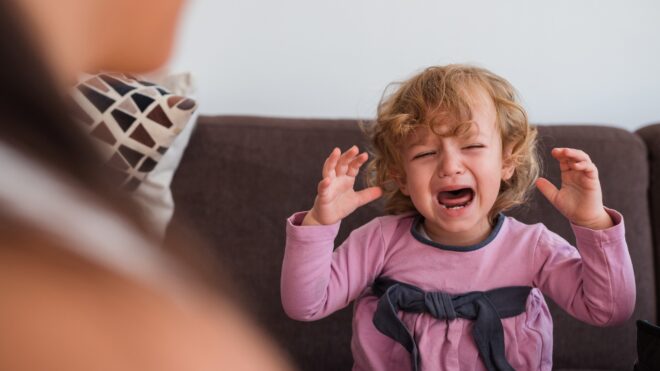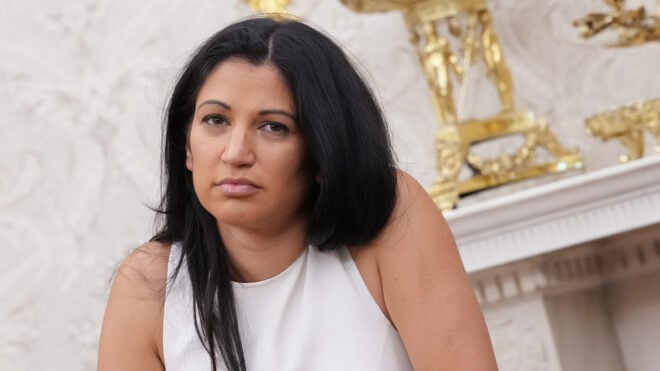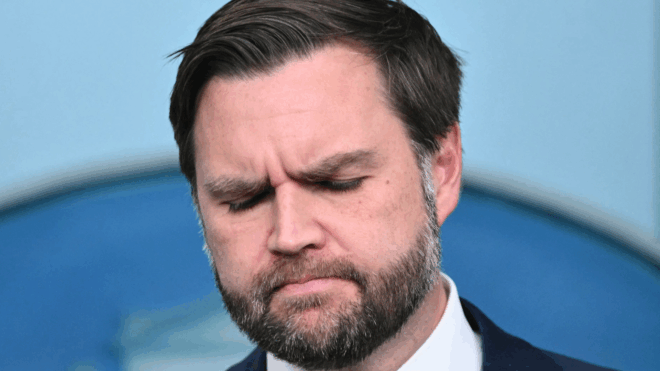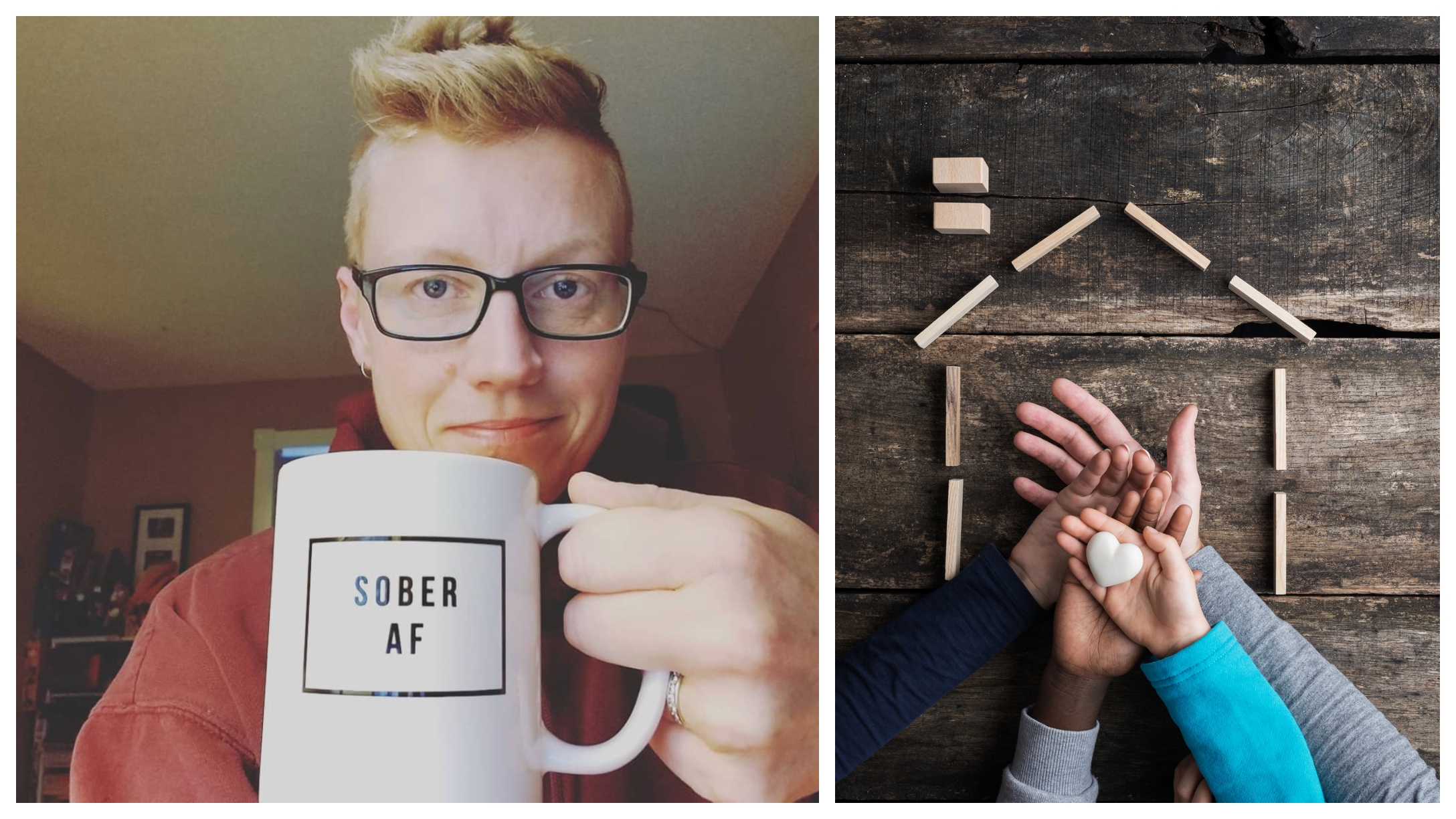
For my first sober anniversary, I bought myself a mug with the words "Sober AF" printed on it. The gift to myself was a nod to my growing confidence and a reminder of how hard being sober was (and still can be) on some days. When my kids asked what the words meant, I told them that sober to me means I don’t drink alcohol or take drugs that aren’t given to me by my doctor. I fibbed and told them that AF stands for "actual fact," which isn’t right, but it’s not wrong either.
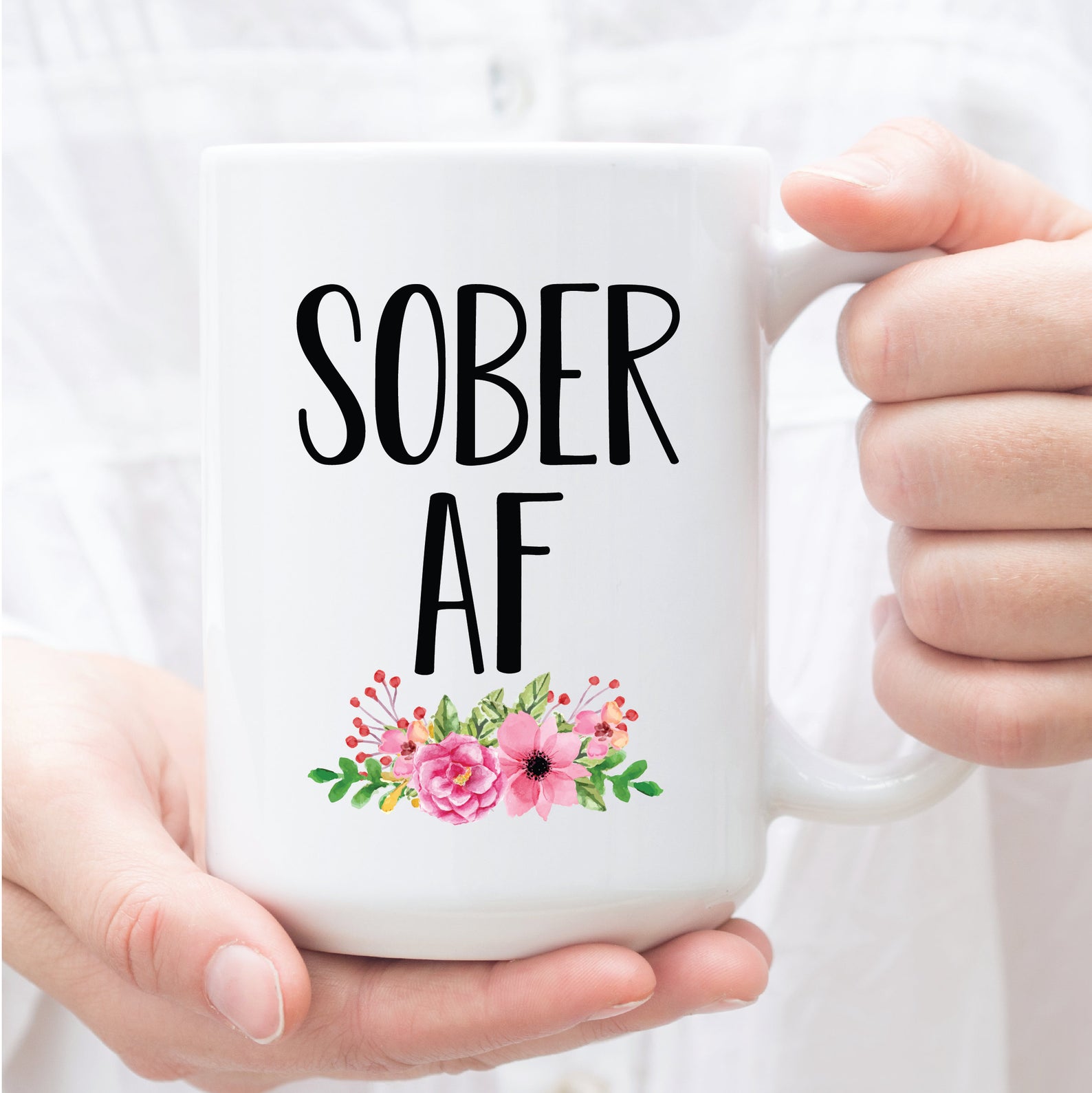
Giving one of my children the opportunity to use the F-word in a way she deemed appropriate would have meant that she would happily announce to her classroom that she was sober AF, too. No one needed that. But I wanted and needed to show my kids that being sober is an active choice I make each day.
My recovery is another fact about me, and I’m happy to share as much of my story as they are ready to learn.
I’m close to being four years sober, and I’m proud of my sobriety. This feeling didn’t come automatically or easily, because to really feel pride, we have to feel worth the joy it brings, and it took me some time to realize I was worthy of a life without alcohol. But that first step on my road to recovery was done with my kids in mind. I was in denial about my addiction and the negative impacts it had on me. But I wasn’t totally oblivious to the impact I was leaving on my kids. They were only 6 and 4 when I started to take an honest look at my drinking and were too young to know what having a high-functioning alcoholic parent meant. But they were aware of the smell on my breath and the fact they couldn’t drink out of my cup because it had alcohol in it, and they knew what kind of beer I liked.
My kids were too little to know the dangers of the situation, and I’m forever grateful none of my decisions harmed them. They say they don’t remember me drinking, and I’m thankful for that, too, but I don’t hide the fact that I no longer drink. I’m not ashamed of my addiction or my sobriety.
My kids are 10 and almost 8 and see as much of my recovery as I’m willing to show them. In the last two years, the curtain has opened more and more. I’ve explained to my kids that I don’t drink anymore because it made me sick; I wasn’t able to make good choices when I was drinking. Every Sunday my kids see me leave for a CrossFit class called The Phoenix; it’s a program for people in recovery. They know I’m with other people who are also sober, and they marvel at my post-workout joy and strength.
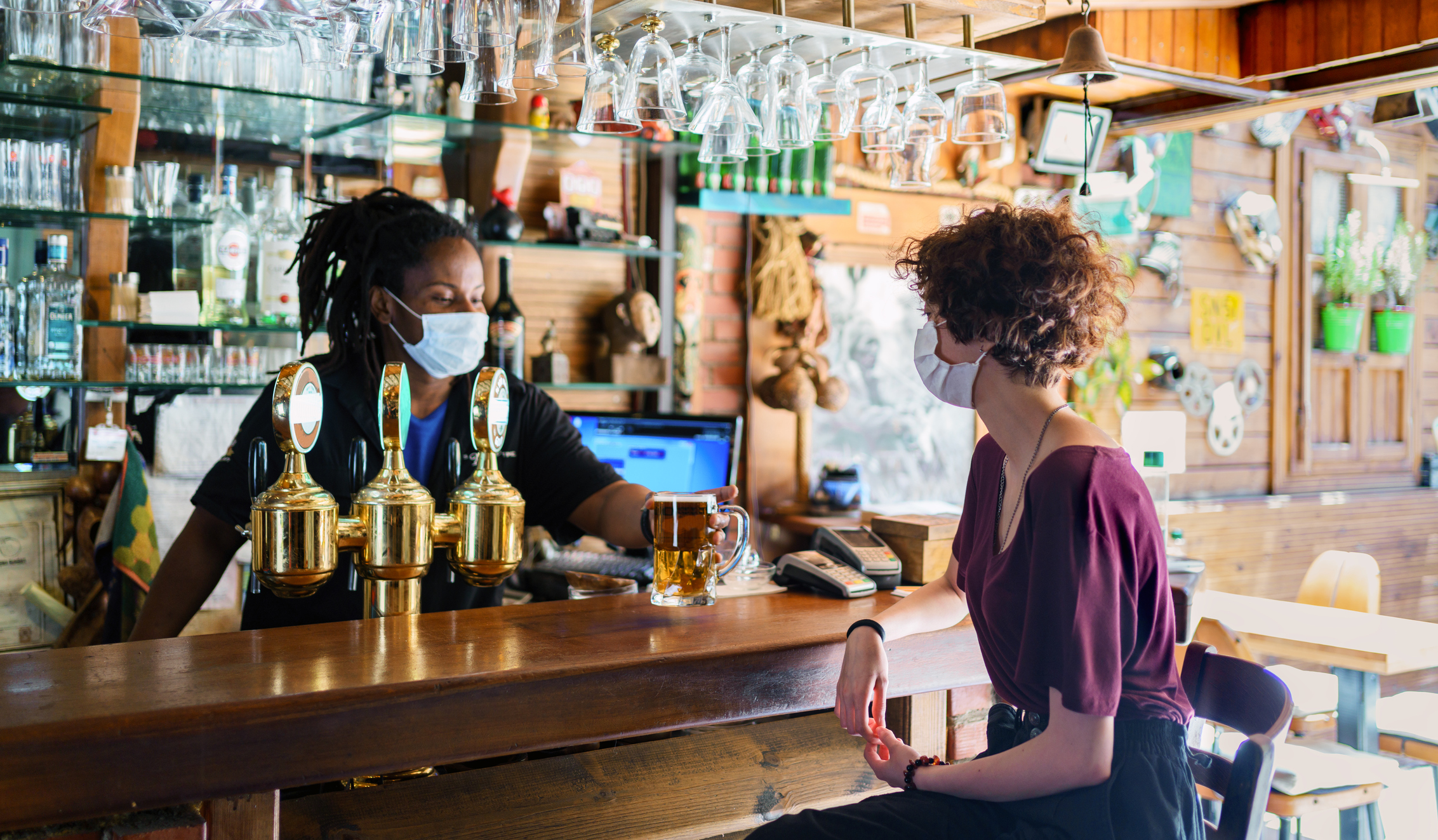
We have been around other parents who do drink alcohol, and because I’m in control of my drinking, I’m able to talk to my kids in an honest way about the responsibility that comes with drinking alcohol. For now, that conversation centers adults, but I know in the next year or two those conversations will be more focused on the choices they will be forced to make.
Soon I will use the words "alcoholic" and "addiction" to explain why I don’t drink. For now, I didn’t want to put a label on myself that they may not quite understand. Some kids can and do understand these words, and I think they can be explained in age-appropriate ways, but I decided to show them what being sober means first. My hope is that this takes some of the stigma out of the way addiction is usually viewed. I want them to associate the word alcoholic with love, resiliency, determination, honesty, boundaries, and work. I want them to show other addicts compassion, too.
Shame is one of the biggest hurdles when asking for help and will often keep an addict using. I want my kids to be a part of breaking that shame cycle so that folks who struggle with substance abuse will feel safe to reach out for the help they need and deserve.
I’m open about my journey with friends and strangers, and I love sharing what I have learned about myself since getting sober. Social media has its downfalls, but it’s also a great place to find support and representation. I’m proud of my positive transformation and want others to know how much I appreciate their words of affirmation.
It took some time to get here, but I’m not ashamed of my addiction or what others will think when they learn I’m an alcoholic. I know who I am and so do the people who love me. My recovery has made me a better person, and that’s not something I want to hide.
 Starting at
$13.99
from
Starting at
$13.99
from



